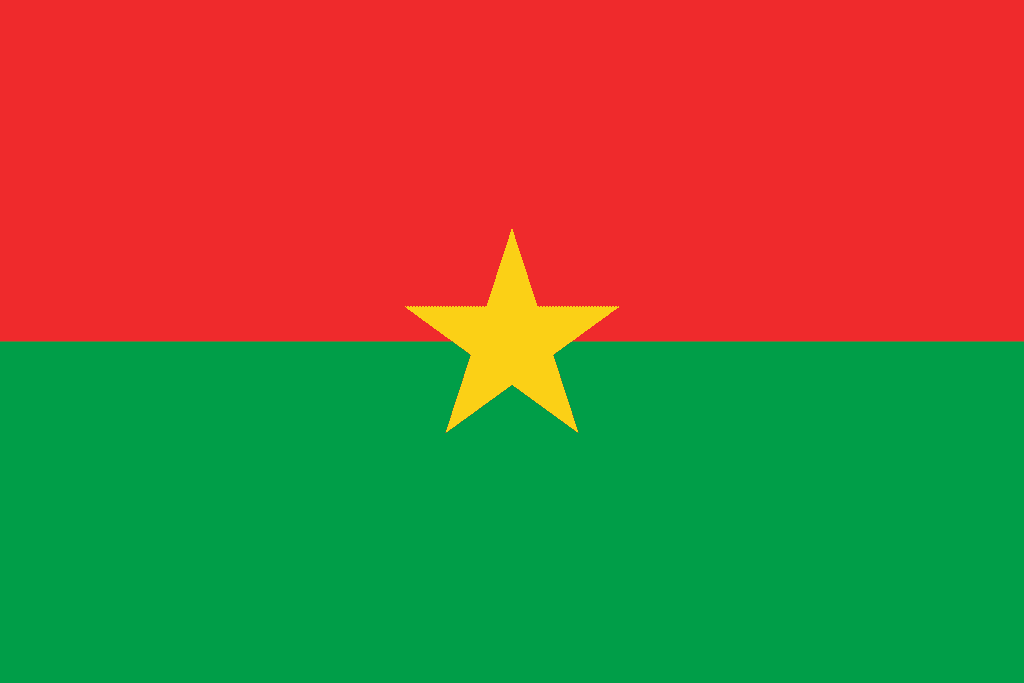Burkina Faso, which attained independence from France on August 5, 1960, is celebrating its 60th anniversary amid Covid-19 and the fight against terrorism.
In his address to the nation, President Roch Marc Christian Kabore insists on defeating these two “scourges of our time.”
“Terrorist attacks” particularly hurt the population and part of the army, but “we have been able to fight and adapt,” he said on his Facebook page.
The Burkinabe leader expresses “deep gratitude to the defense and security forces, and to the health personnel, for the sacrifices made.”
Since the start of the pandemic, the latest update has reported 1,153 cases of coronavirus, including 947 recoveries and 54 deaths.
These figures are probably far from real, like everywhere else in the world.
Moreover, the results of 60 years of independence are viewed by many Burkinabe as mixed, and even overshadowed by the terrorist crisis that has been rife in the country for the past few years.
In several areas, efforts still need to be made, Soumane Toure, the leader of the Party for the Independence of Labor and Justice told RFI, adding that “the expectations of the populations are great today, especially on the fundamental issues of health, production and food self-sufficiency. We all have a problem.”
For other citizens, their country has experienced a real setback: “We have fallen behind. We have borders that we can no longer control, especially in Soum, in Yagha, in the East, in the North. If things continue this way, we will be in big trouble.”
“Nothing has changed!”
In 60 years of independence, the Burkinabe news site, Wakat Sera denounces, in a scathing editorial, what it calls African leaders who “are still on the payroll of Paris.”
It says several African countries which were under the yoke of France, like Senegal, Benin and Gabon, are celebrating their 60th anniversary this year.
But “nothing has changed, the site laments.
According to the site economically, the CFA francs, which dates back to the colonial era, remains under Western control, while politically, decisions regarding Africa are made in London, Brussels or Paris.
“The objects of worship and others that bear the history of Africans are still in museums or private collections in the West. Even the written, visual or sound archives of Africa are lent to blacks, when they need them, by the old masters” the website says.
I“Gaining national and international sovereignty was the fruit of the struggle of our illustrious predecessors, such as Thomas Sankara”, President Kabore says in his address.
Some of his compatriots find themselves nostalgic over the army captain (Sankara) who seized power on August 4, 1983 in a military coup.
He established a revolutionary regime and the following year, changed ‘Haute Volta,’ the then name of the country to Burkina Faso.
It is a combination of two words in two of the country’s main languages, whose meaning is “The Homeland of Upright Men.”
Assassinated on October 15, 1987, Thomas Sankara remains today an icon for the youth claiming to be Pan-Africanists.
His “friend” Blaise Compaore, seized power and remained the country’s leader until his resignation on October 31, 2014, following a popular uprising.
After a complicated transition, Roch Marc Christian Kabore was elected president on December 29, 2015.
However, his term is an uphill struggle given the scourge of terrorism blighting most countries of the Sahel.
However, organizations are taking time to monitor the role of the security forces in some localities.
Last June, Amnesty International called on the governments of Mali, Burkina Faso and Niger “to end impunity for violations regularly committed” by their own security forces against unarmed populations.
In Burkina Faso, AI says it has compiled reports of “flagrant violations” of human rights thought to have been committed by security forces between March and April 2020.
 |
ODL/te/fss/as/APA


